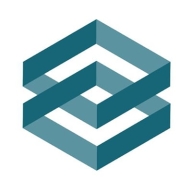

SUSE Linux Enterprise and PostgreSQL on Ubuntu target different segments in enterprise computing. SUSE Linux Enterprise appears to have the upper hand for enterprises requiring strong support and ease of deployment, while PostgreSQL on Ubuntu is preferable for businesses needing extensive database functionalities and cost-effectiveness.
Features: SUSE Linux Enterprise offers high availability, security enhancements, and scalability. PostgreSQL on Ubuntu offers extensive database capabilities, strong performance, and integration flexibility.
Ease of Deployment and Customer Service: SUSE Linux Enterprise provides a straightforward deployment process with integrated customer support. PostgreSQL on Ubuntu has versatile deployment options requiring technical expertise and a skilled team for support.
Pricing and ROI: SUSE Linux Enterprise provides competitive licensing models with predictable costs. PostgreSQL on Ubuntu, being open-source, significantly reduces setup costs and delivers substantial long-term returns due to its low initial investment and robust performance.

| Company Size | Count |
|---|---|
| Small Business | 8 |
| Midsize Enterprise | 11 |
| Large Enterprise | 20 |
SUSE Linux Enterprise offers features like YaST for server management, seamless integration with Oracle and SAP, and a robust security setup. Renowned for stability, it efficiently supports workstations, SAP workloads, and cloud migrations across diverse industries.
SUSE Linux Enterprise is known for its lightweight design, high performance, and ease of installation. Its flexible architecture supports extensive documentation and efficient patching. The system uses the BTRFS file system for effective virtualization, and community support is significant. However, challenges include package updates causing conflicts, difficult initial setup and software management, high pricing, and support response times. Improvements in security compliance, cloud integration, hardware compatibility, and documentation are also needed.
What are SUSE Linux Enterprise's important features?
What benefits should users expect from using SUSE Linux Enterprise?
Industries like healthcare and banking use SUSE Linux Enterprise for secure transactions and structured application deployment. It is also a choice for organizations involved in testing, automation, and web development, offering support for SAP HANA integration and facilitating cloud migrations.
We monitor all Operating Systems (OS) for Business reviews to prevent fraudulent reviews and keep review quality high. We do not post reviews by company employees or direct competitors. We validate each review for authenticity via cross-reference with LinkedIn, and personal follow-up with the reviewer when necessary.